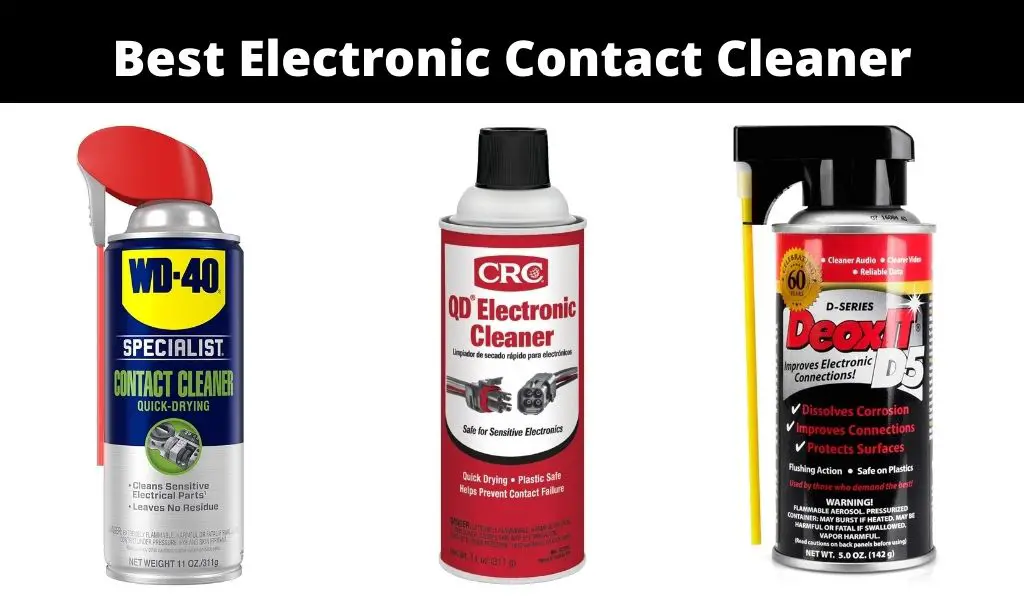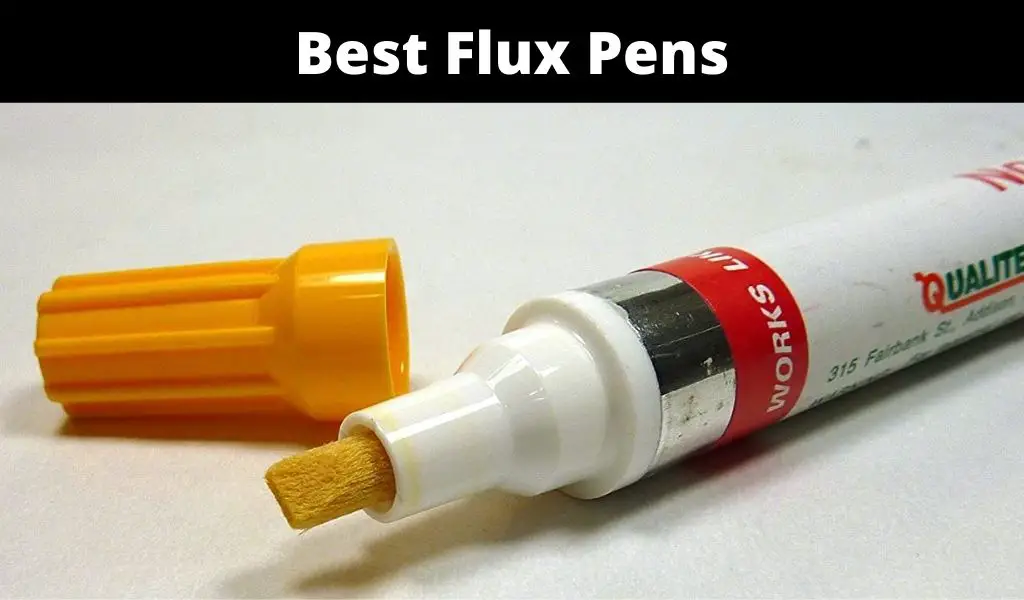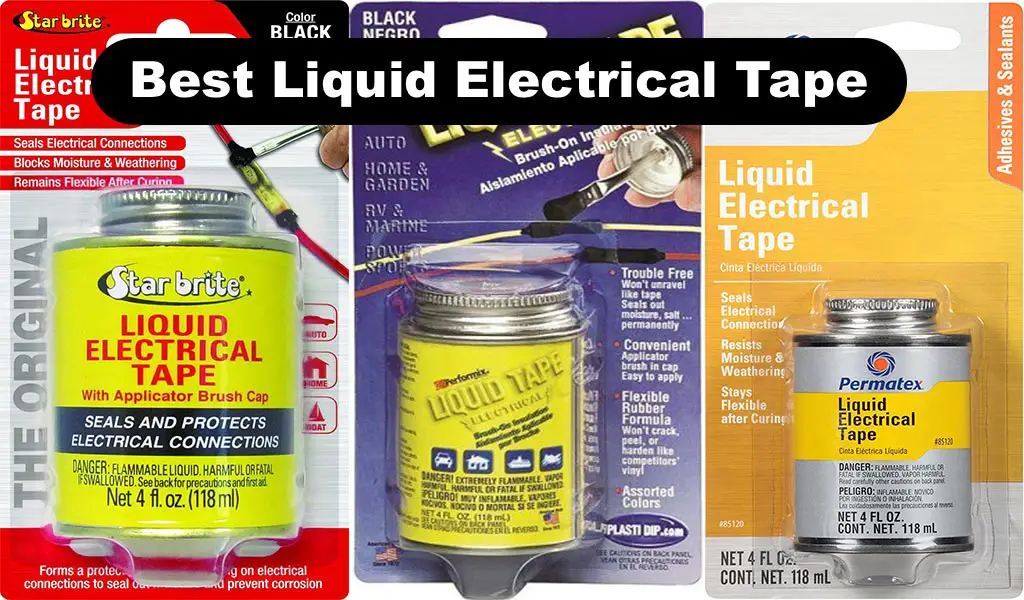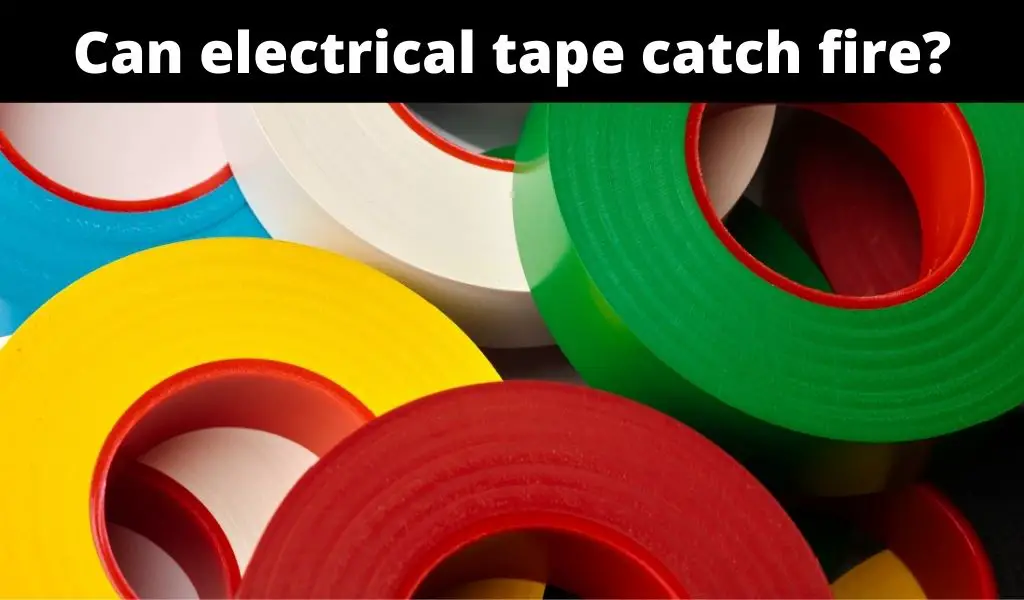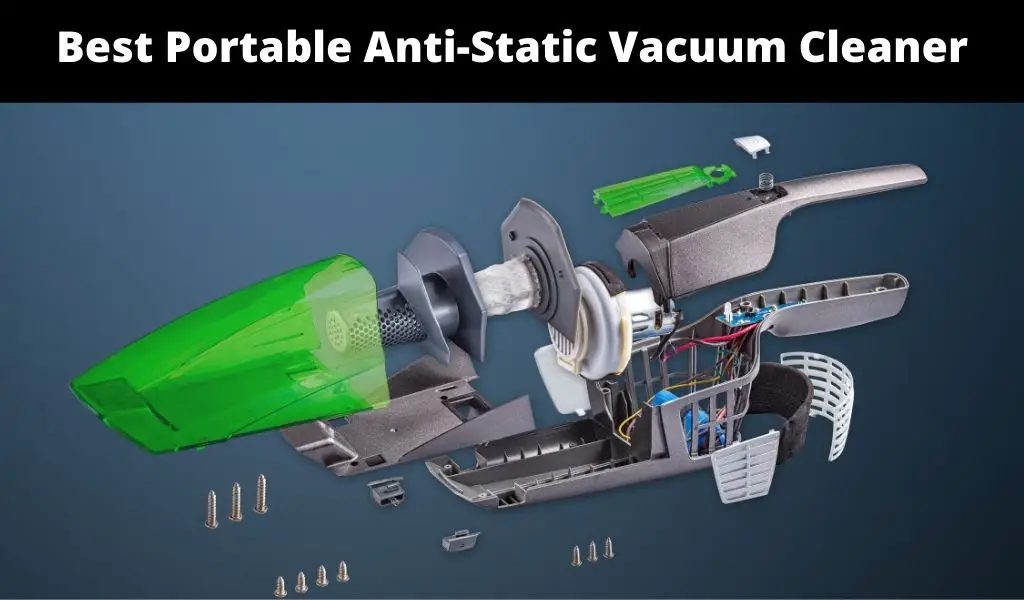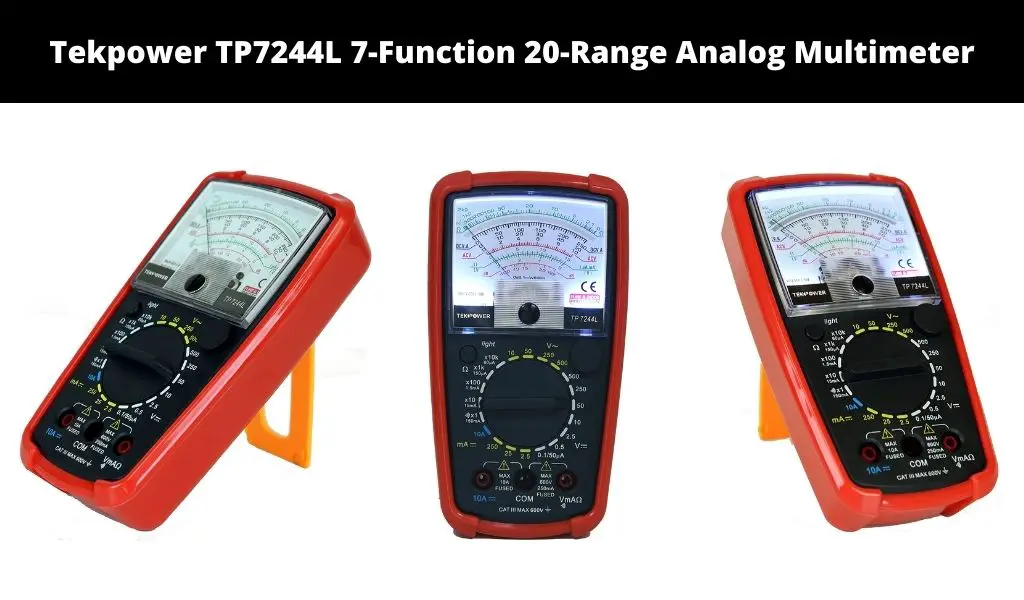An electrical contact cleaner is a relatively simple product. It is a combination of compressed air and some type of cleaning agent, like isopropyl alcohol. As any electronic repair technician knows, electronics and their components can become dirty easily. This can hinder performance. The best electronic contact cleaner can remove food, oil, grease, and more from your electronic contacts. It can also help to dislodge any foreign elements.
Top 7 Best Electronic Contact Cleaners
Now that you understand why an electronic contact cleaner is important, let us take a look at the top products on Amazon.
- Hosa D5S-6 CAIG DeoxIT.
- CRC 5103 Quick Dry Electronic Cleaner.
- WD-40 Specialist Electrical Contact Cleaner Spray.
- Max Professional 2015 Contact Cleaner (DPC).
- CAIG Laboratories DeoxIT Wipes.
- MG Chemicals Super Contact Cleaner with PPE.
- Permatex 82588 Electrical Contact and Parts Cleaner.
| Image | Title | Price | Prime | Buy |
|---|---|---|---|---|
Top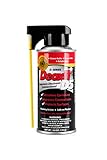 | Hosa D5S-6 CAIG DeoxIT | Prime | Buy Now | |
 | CRC 5103 Quick Dry Electronic Cleaner | PrimeEligible | Buy Now | |
 | WD-40 Specialist Electrical Contact Cleaner Spray | Prime | Buy Now | |
 | CAIG Laboratories DeoxIT Wipes | Prime | Buy Now | |
 | MG Chemicals Super Contact Cleaner With PPE | Prime | Buy Now | |
 | Permatex 82588 Electrical Contact And Parts Cleaner | Prime | Buy Now |
1- Hosa D5S-6 CAIG DeoxIT
Prices pulled from the Amazon Product Advertising API on:
Product prices and availability are accurate as of the date/time indicated and are subject to change. Any price and availability information displayed on [relevant Amazon Site(s), as applicable] at the time of purchase will apply to the purchase of this product.
CAIG’s DeoxIT is the gold standard when it comes to electrical conduct cleaners. What is in this highly recommended product? That remains a mystery as their unique formula is listed as a “Proprietary Trade Secret.” A propellant and mineral spirit blend is listed as part of the ingredients, however. (There has been an ongoing rumor that CAIG uses an oleic acid.
The CAIG adamantly denies this.) DeoxIT is fast-acting. The manufacturer designed it with connectors, contacts, and many other metal surfaces in mind. As a general treatment, not only does it clean contacts, it also acts to chemically improve electrical connections as well.
Pros
Not only does DeoxIT clean contacts, it also lubricates and improves conductivity in general. In doing so, this contact cleaner aids in the reduction of intermittent connections, arching and RFI. Users have also noted that it helps to prevent wear and abrasions as well. It is safe on all metal connectors and contacts. Additionally, it will not harm plastics either.
Cons
The only real complaint about the DeoxIT is the nozzle and tube design. Some users have noted that the tube is actually too large for the nozzle, which makes it difficult to use and less than precise. A simple replacement with a nozzle from another spray tends to correct this issue.
2- CRC 5103 Quick Dry Electronic Cleaner
Prices pulled from the Amazon Product Advertising API on:
Product prices and availability are accurate as of the date/time indicated and are subject to change. Any price and availability information displayed on [relevant Amazon Site(s), as applicable] at the time of purchase will apply to the purchase of this product.
CRC offers several different contact cleaners. However, the 5103 Quick Dry Electronic Cleaner is perhaps the most popular. As with many of the other products, the CRC 5103 is fast drying and will leave no residue behind. The CRC 5103 contains more ingredients than the others, however. Methylpentane, difluoroethane, petroleum, n-hexane, n-pentane and dimethylbutane all help to make this contact cleaner what it is. It is safe to use on connectors and will not harm your plastics.
Pros
Users who need something that dries quickly will appreciate this cleaner. Individuals who work in the automotive industry are particularly fond of the CRC 5103.
Cons
While this does dry quickly, a few users actually noted that this can be a bit problematic. In some instances, it dried before they could work sliders or knobs loose. This means you have to use more of it to equally the effects of some of the higher end products. Also of note, while the CRC 5103 lists petroleum as an ingredient, combined with the quick drying, this does not really lubricate your elements.
3- WD-40 Specialist Electrical Contact Cleaner Spray
Prices pulled from the Amazon Product Advertising API on:
Product prices and availability are accurate as of the date/time indicated and are subject to change. Any price and availability information displayed on [relevant Amazon Site(s), as applicable] at the time of purchase will apply to the purchase of this product.
As a brand, WD-40 is well known among those in the electronics industry. After more than 60 years or production, the WD-40 Company is constantly looking for new and innovative ways to support their customers’ needs. The WD-40 Specialists Electrical Contact Cleaner is a blend of n-Hexane, IPA, and difluoroethane. The exact blend, while proprietary, is quick drying and residue-free. It is safe for use on all metals and will not harm any plastic or rubber it should come in contact with.
Pros
WD-40 is a popular product for a reason. Not only can you pick up a can of it almost anywhere, it is affordable. Plenty of users have pointed out that it cleans off even some of the most stuck on gunk quickly.
Cons
The WD-40 Specialist Electrical Contact Cleaner claims to also provide lubrication. However, many users pointed out that this is not the case. Not only is a lubricant not listed on the ingredient list, users have reported that this particular feature is non-existent. Some users have also noted that it does not dry as quickly as they had thought it would.
4- Max Professional 2015 Contact Cleaner (DPC)
Prices pulled from the Amazon Product Advertising API on:
Product prices and availability are accurate as of the date/time indicated and are subject to change. Any price and availability information displayed on [relevant Amazon Site(s), as applicable] at the time of purchase will apply to the purchase of this product.
There are various Man Professional cleaning sprays available for use with electronics. However, the 2015 Contact Cleaner is safe on plastics, which is ideal. (Be advised, cleaners that do not specifically state that they are safe for use with plastics may cause problems. These cleaners are actually so strong that they can melt your plastics and create additional problems.) Max Professional markets this product for use on circuit boards, power tools, batteries and other electronics. As with the others, the Max Professional 2015 Contact Cleaner is quick drying and will leave little to no residue after use. Max Professional 2015 Contact Cleaner is made of a blend of IPA, petroleum hydrocarbon and n-hexane.
Pros
Users that do try the Max Professional 2015 Contact Cleaner have given it high ratings. While it is certainly not as great as the higher end cleaners, like the DeoxIT products, it will clean your contacts.
Cons
The petroleum hydrocarbon is misleading. The Max Professional 2015 Contact Cleaner does not lubricate your components well enough if you are relying on it to do so. You will need to invest in a separate lubricant if necessary.
5- CAIG Laboratories DeoxIT Wipes
Prices pulled from the Amazon Product Advertising API on:
Product prices and availability are accurate as of the date/time indicated and are subject to change. Any price and availability information displayed on [relevant Amazon Site(s), as applicable] at the time of purchase will apply to the purchase of this product.
As with the DeoxIT spray, the CAIG DeoxIT Wipes is another highly recommended product. These small wipes clean your contacts and help to reduce intermittent connections, arcing and RFI. Because they are infused with the same proprietary blend, they lubricate your components and help to reduce wear and abrasions. The DeoxIT Wipes is safe to use on metals and will not damage plastics it comes into contact with. (In case you are wondering, CAIG also have a DeoxIT Pen available
Pros
The DeoxIT wipes are great for easy to access areas. Battery terminals, large circuit boards, and other such items will benefit from these wipes. The wipes also conveniently remove the dirt without the help of an additional microfiber towel.
Cons
The wipes can be a bit inconvenient for those hard to reach places. While a spray nozzle can be inserted into most spaces, the wipes can be a bit more limited.
6- MG Chemicals Super Contact Cleaner with PPE
Prices pulled from the Amazon Product Advertising API on:
Product prices and availability are accurate as of the date/time indicated and are subject to change. Any price and availability information displayed on [relevant Amazon Site(s), as applicable] at the time of purchase will apply to the purchase of this product.
MG Chemicals’ Super Contact Cleaner is another product that claims to have a lubrication feature. The polyphenyl ether (PPE) provides an electronic-safe lubricant that will help to reduce wear and tear on your components. This product is also safe on plastics. MG Chemicals also claims this contact cleaner will protect gold for life. (MG Chemicals also offers a purely IPA cleaner, as well as a contact cleaner solution with silicones in place of the PPE.)
Pros
Guitar players really seem to favor the MG Chemicals Super Contact Cleaner. From amps to studio equipment, musicians are highly recommending this product.
Cons
Some users have noted that the MG Chemicals Super Contact Cleaner with PPE does not provide a long lasting solution to oxidation. In fact, one user stated that the cleaner did remove gunk when first applied. However, when they looked the next day, the oxidation build up had already started to return.
7- Permatex 82588 Electrical Contact and Parts Cleaner
Prices pulled from the Amazon Product Advertising API on:
Product prices and availability are accurate as of the date/time indicated and are subject to change. Any price and availability information displayed on [relevant Amazon Site(s), as applicable] at the time of purchase will apply to the purchase of this product.
Permatex is not as well known as several of the other brands on this list. However, it offers the same quick drying, residue-free application. However, Permatex markets itself as a more environmentally friendly cleaner, specifically citing that it has no ozone-depleting chemicals in its formula.
Pros
Most users have reported that this contact cleaner works as well as many of the others, despite the less toxic chemicals being used. For those who are environmentally conscious, the Permatex 82588 Electrical Contact and Parts Cleaner makes an ideal solution to oxidation.
Cons
The Permatex 82588 Electrical Contact and Parts Cleaner does not include a lubricating feature. However, it carries a similar price tag to the solutions that do.
Conclusion
As an electrical repair technician, hobbyist, or just someone looking to fix their phone – cleaning your contacts and connectors is one of your first steps. After all, sometimes, the only real problem is a layer of oxidation too thick for a current to penetrate.
With products like DeoxIT on the market, you get a cleaner that also doubles as a lubricant. However, a cheaper product, like WD-40, CRC or Max Professional certainly can clean your contacts as well. Depending on your requirement and use, any of the products on this list can ensure your contacts are clear of oxidation, dirt, grime and debris.
It is important to remember, nonetheless, that there are stronger cleaners available on the market. For those who work on phones, amps, or other items that may include plastic parts, however, finding a cleaner that is safe to use with plastics is important. Fixing the contact, but damaging the plastic on a client’s device is less than ideal.
Make sure you do your homework. While this list contains several great products we highly recommend, there are others on the market. User reviews can give you specifics that are directly related to your individual intended use that we cannot.
FAQ’s
Is Acetone Bad for Electronics?
In most cases acetone is bad for electronics. Acetone, also known as propanone, is an organic compound ketone. It is colorless, flammable, and highly volatile with a pungent odor, making it a less than ideal candidate for cleaning electronics.
Acetone would not be a safe cleaner to use on circuit boards, cellphones, keyboards, or many other popular household electronics. One of the primary reasons it is not a recommended cleaner for electronics is because it is strong enough to dissolve plastic material, which is commonly found in many electronics.
If potentially damaging the plastic components of the electronic isn’t reason enough not to use acetone as a cleaner, the abrasive material found in acetone can also be very damaging if it is accidentally spilled. Acetone can be damaging to skin, carpet, tabletops, and more, making it a less than favorable cleaning solution for delicate material. People should use extreme care when cleaning with acetone.
What Can I Use Instead of Electrical Contact Cleaner?
Instead of using an electrical contact cleaner one could consider using a distilled water and isopropyl alcohol mixture at a 1:1 ratio. This acts similarly to electrical contact cleaner, which is a chemical mixture that is used to remove and prevent build-up of unwanted substances on conductive surfaces.
Alcohol is considered a model material to clean electronics with due to its quick evaporation time. While distilled water and isopropyl alcohol is a desirable alternative to electrical contact cleaners, when cleaning the plastic components of an electronic device a distilled water and vinegar mix could be even more desirable.
The reason being, vinegar will not cause yellowing on light colored plastic surfaces like one may experience when using an alcohol-based mixture. One may also use an ultrasonic cleaner, WD-40, plain distilled water, and even sandpaper during a manual clean, as a substitute for electrical contact cleaner. The effectiveness of these substitutes will vary based on each individual scenario.
Is Contact Cleaner the Same as Electrical Cleaner?
The term “contact cleaner” has been more readily associated with cleaning metal-to-metal surfaces, while “electrical cleaner” sounded more general purpose. However, both terms are interchangeable, and there are no major differences between contact and electrical cleaner. Specific product may vary slightly, and should provide MSDS information for customers to review prior to starting their cleaning projects.
Contact cleaner is also commonly referred to as switch cleaner. One may come across even more specific terms, such as battery terminal cleaner, which is a type of contact cleaner for automotive repair. Contact, or electrical cleaner general refers to any cleaner that is solvent-based, and built to clean impurities from electrical contacts or other conductive surfaces. These surfaces may include, but are not limited to switches, boards, and connectors.
What Can I Use Instead of DeOxit?
There are a variety of different alternatives to the popular contact cleaner, DeOxit. DeOxit is a lubricant and conductivity enhancer that dissolves corrosion and oxidation from a metal surface. DeOxit revitalizes electrical equipment by filling infinitesimal gaps and reseals the surface it is used on; thus, enhancing electricity flow, refining connector performance, and increasing future reliability.
Some product known to produce similar results include, Cramolin, Nutrol, and Lectra Clean. Cramolin is composed of oleic acid and naphtha, while Nutrol is a blend of lubricating mineral oil and high purity solvents, and Lectra Clean is a heavy-duty degreaser for electrical parts.
Is Isopropyl Alcohol Safe on Electronics?
Isopropyl alcohol is very safe to use on electronics. In fact, IPA 99% is considered one of the most effective, and safest cleaners for electronic devices. Electronic devices include items such as personal computers, cellphones, and more. Isopropyl alcohol is considered superior to the similar isopropyl rubbing alcohol, however the two are oftentimes mistaken for one another. When cleaning electronics ideally use the purest alcohol accessible.
By dissolving a vast range of non-polar and polar soils isopropyl alcohol can remove fingerprints, light oils, cutting fluids, carbon deposits, mold release, and flux residues. It also functions as a drying agent, which is another cleaning benefit.
The majority of materials found in electronics are extremely compatible with isopropyl alcohol. This includes but is not limited to, Aluminum, CPVC, Epoxy, Noryl, Phenolic, Teflon, and Viton. However, there are some materials found in electronics to avoid cleaning with isopropyl alcohol, including Polystyrene, Polycarbonate, and PVC. Popular materials Buna-N, Neoprene, Cross-Linked PE, Polypropylene, and Tygon should fair alright when cleaned with isopropyl alcohol.
Can You Spray Brake Cleaner on Electrical Contacts?
Brake cleaner is not recommended for use on electrical contacts. The reason being parts, such as the electrical insulation, may be composed of organics, composites, and plastics that could be damaged by brake cleaner. Brake cleaner will perform best on ceramic material, but most switches do not have housings made 100% of ceramic material.
Another thing to consider is the damage the brake cleaner could potentially cause to any exposed wiring. Most brake cleaners come in spray form too, which is prone to user error, such as overspray. Most brake cleaners will outline their limitations on the side of the can. Often this includes, “not for use on plastics”.
Another point to consider is how highly flammable brake cleaners can be. There is no recommended scenario where spray brake cleaner should be used in place of electrical contact cleaner.
Is WD-40 Electrically Conductive?
WD-40, or “Water Displacement, 40th Formula” is considered a non-conductive cleaner. Made up of numerous hydrocarbons that protects again rust and corrosion, it is a popular cleaning product. While the actual content of WD-40 is not public knowledge, we know it does not contain graphite, silicone, water, kerosene, or chlorofluorocarbons (CFCs).
WD-40 should not be conductive at a normal electrical socket voltage and is not considered flammable. While it may not be flammable, WD-40 is a combustible material meaning it can ignite at extremely high temperatures. Unlike contact cleaner, WD-40 is known to leave a film behind.
WD-40 is made to do five things, lubricate, penetrate, protect, remove, and displace moisture. By penetrating the surface WD-40 is able to loosen rust-to-metal bonds and unfreeze moving parts. After application, it should protect the metal surface and act as a shield against corrosive elements and displace moisture to quickly dry out electrical systems and remove short circuits induced by moisture.
During application, WD-40 should remove grease, grime, and dirt making it perfect for cleaning tools, vehicles, and other equipment. While WD-40 is considered non-conductive, it is not the best tool for cleaning electronics because it will combust at a high flashpoint.

